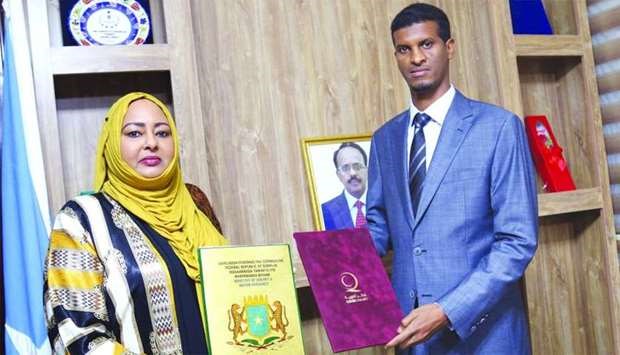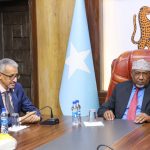Qatar Charity (QC) signed a co-operation and partnership agreement with the Ministry of Energy and Water Resources in Mogadishu, Somalia to continue its efforts for the benefit of those affected by recurrent droughts and floods.
The deal aims to support the efforts of the ministry in achieving sustainable development gradually in the energy and water sector of Somalia, in co-ordination and co-operation with relevant governmental international authorities.
The agreement was signed by Somalia’s Minister of Energy and Water Resources Fawzia Mohamed Sheikh, and Director of Qatar Charity’s office in Somalia Abdulnour Haj Ali, in the presence of the deputy minister of the Energy and Water Resources.
The co-operation between the ministry and Qatar Charity includes drilling deep and surface water wells and ponds, repairing deep water wells, installing solar-powered water pumps for drilled wells, and training technical personnel in the field of renewable energy and water technology and other water and energy sectors.
This agreement comes at a time when the Somali government started moving towards a gradual transition from the humanitarian response to supporting development and stability efforts in the country through the implementation of sustainable development projects aimed at providing water and energy services for all citizens.
The total cost amounted to QR5,578,000, and benefited 446,484 people from the drought-affected areas and other residents of remote areas. Water projects have contributed to alleviating the suffering of the drought-affected people and helping them find drinking water and irrigating their livestock and farms.
The total value of Qatar’s charitable projects for water and its relief campaigns for those affected by drought in the past year amounted to about QR11.5mn, benefiting more than 550,000 people.
Qatar Charity has been able to implement more than 2,377 projects in Somalia during the past year in various fields, benefiting 1,027,415 people at a total cost of QR108.5mn, covering the areas of water, sanitation, education, culture and health, in addition to economic empowerment, building homes and social and relief projects.





